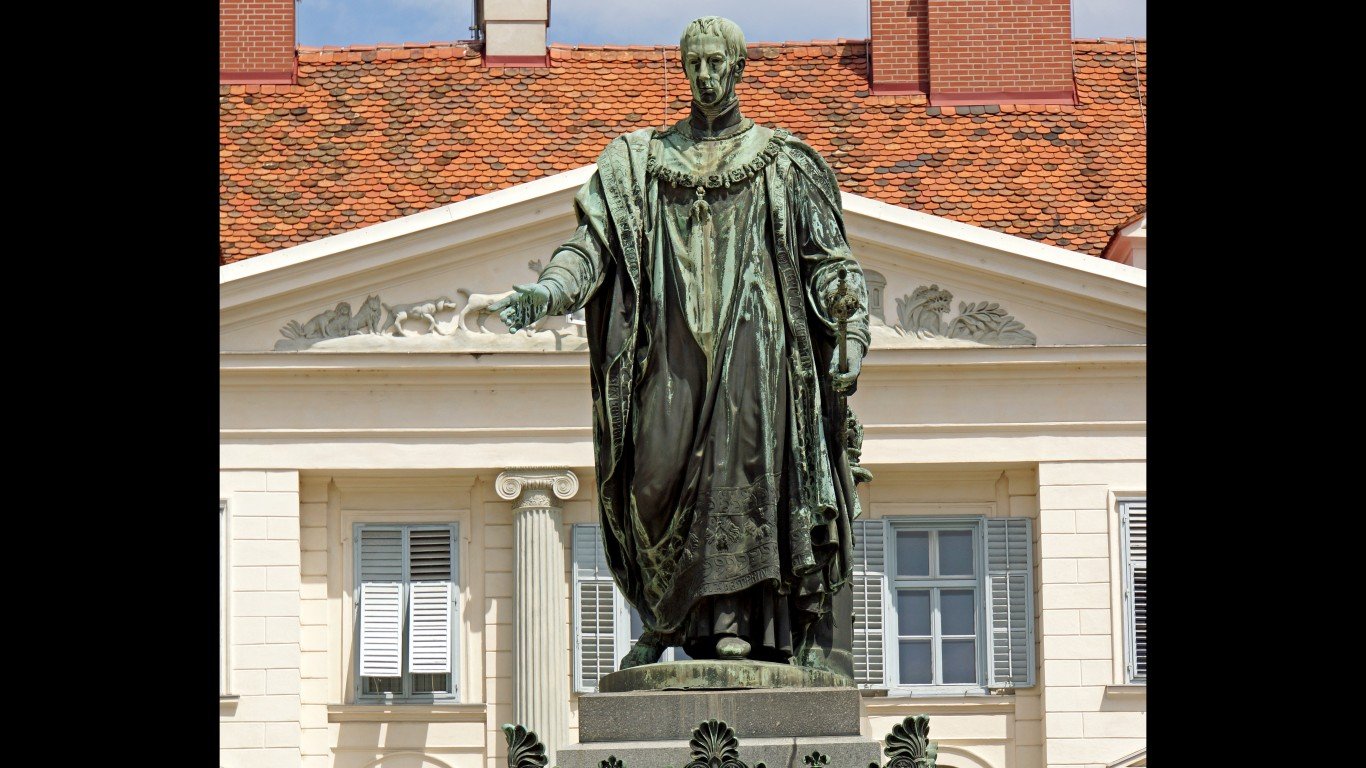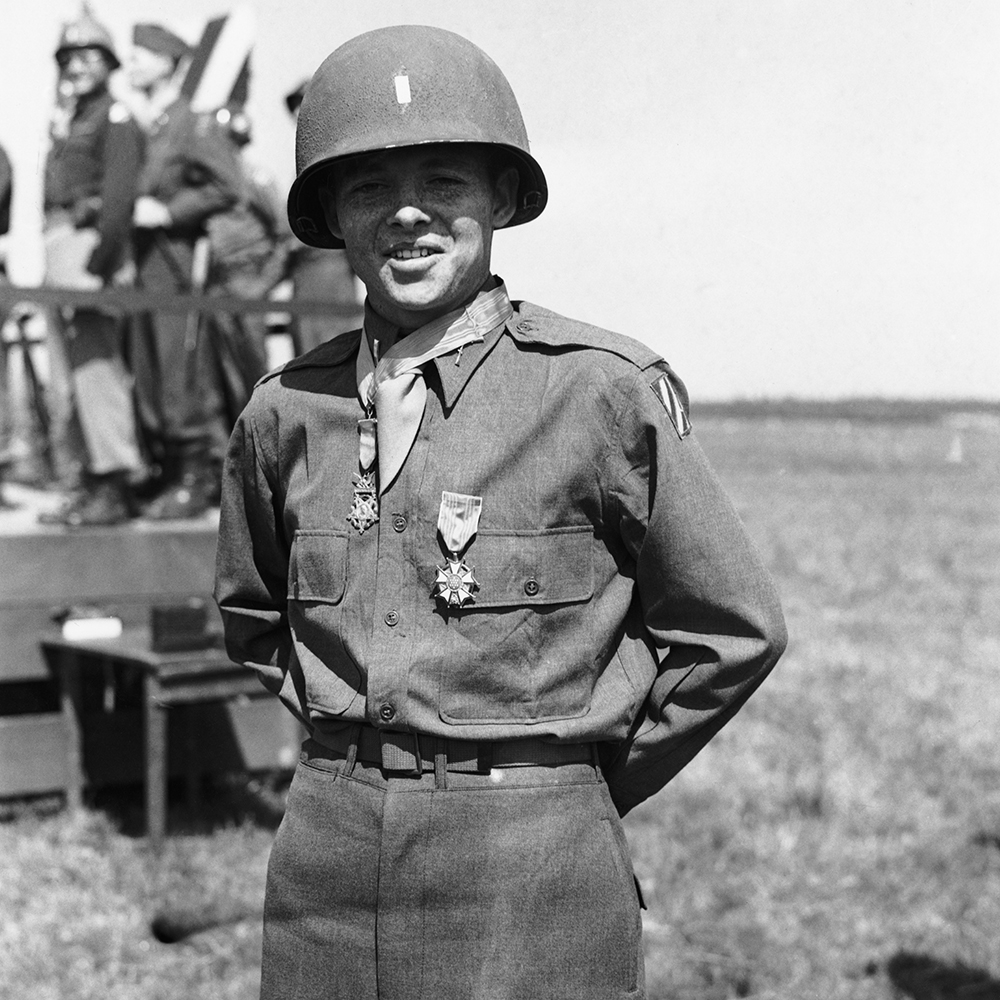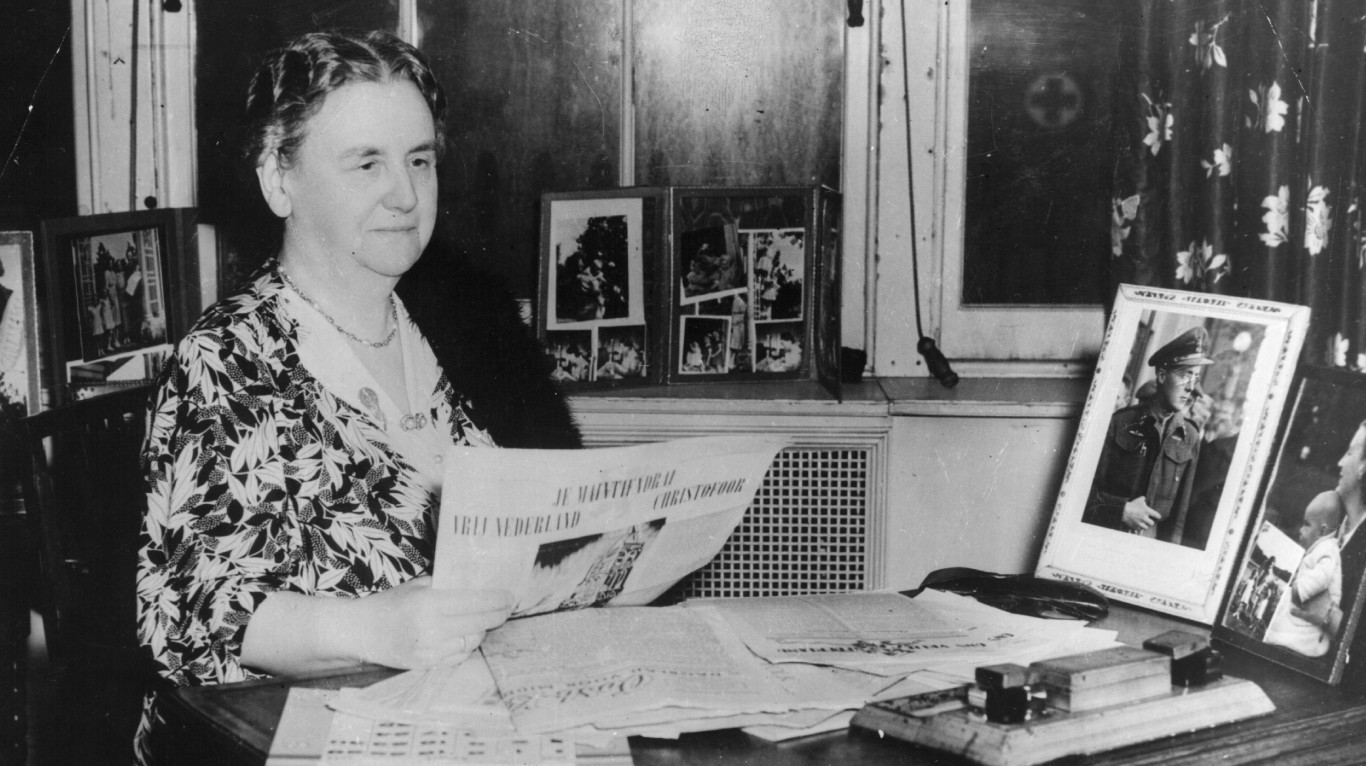

Whether it is running the affairs of state or directing complicated military maneuvers, age has not necessarily been a hindrance to wartime leadership.
To compile a list of the oldest wartime leaders in history, 24/7 Tempo consulted sources including Britannica and Historynet. Besides leaders of nations, we included significant military leaders who either commanded armies or navies into advanced age during wartime and/or held positions of military power into their elder years.
Some of the leaders on our list were called out of retirement to serve their nations when they were in the 80s. Paul Von Hindenburg, who was recalled from retirement to rescue the German Army on the Eastern Front in WWI, returned from retirement again in 1925 to serve as the Weimar Republic’s president until his death in 1934 at age 87. French WWI hero Henri-Philippe Pétain was pulled out of retirement to become “chief of state” by the collaborationist Vichy government after France collapsed in WWII.
Monarchs of three nations – the Netherlands, Denmark, and Norway – served their countries during both world wars. The sovereigns of the Netherlands and Norway rallied their people while they were in exile during WWII. King Christian X stayed in Denmark during the German occupation. His defiance put him in a prison in 1943 where he remained for the rest of the war. All three monarchs would return in triumph.
Two military leaders in Asia with long and distinguished military careers reset the Western perception of Asian strategic ability. Tōgō Heihachirō was the 57-year-old admiral whose tactics led the Japanese fleet to victory over the Russian Navy’s Baltic fleet in the Battle of Tsushima during the Russo-Japanese War in 1904 and ‘05.
Click here to see the oldest wartime leaders in history
Võ Nguyên Giáp led Vietnamese forces against the Japanese during WWII, defeated the French in the First Indochina War (1946-54), and, when he was 63 years old, authored the North Vietnamese triumph over America’s South Vietnamese allies in the Vietnam War.
Some of these wartime leaders fought until the very end. Prince Mikhail Illarionovich Golenishchev-Kutuzov died from disease at 67 years old in 1813 leading Russian troops in pursuit of Napoleon’s legions after France withdrew from Moscow. (These are the countries with the oldest leaders.)

Mariano Álvarez (1818-1924)
> Title: Filipino general and president of the Magdiwang
At the age of 78, Mariano Álvarez was named president of the Magdiwang branch of the Katipunan, a secret society whose aim was to expel the Spanish from the Philippines. With the rank of general, he led uprisings against the Spanish in the province of Cavite, and is considered to have launched the Filipino revolution there. The Cavite municipality of General Mariano Álvarez is named after him.
[in-text-ad]
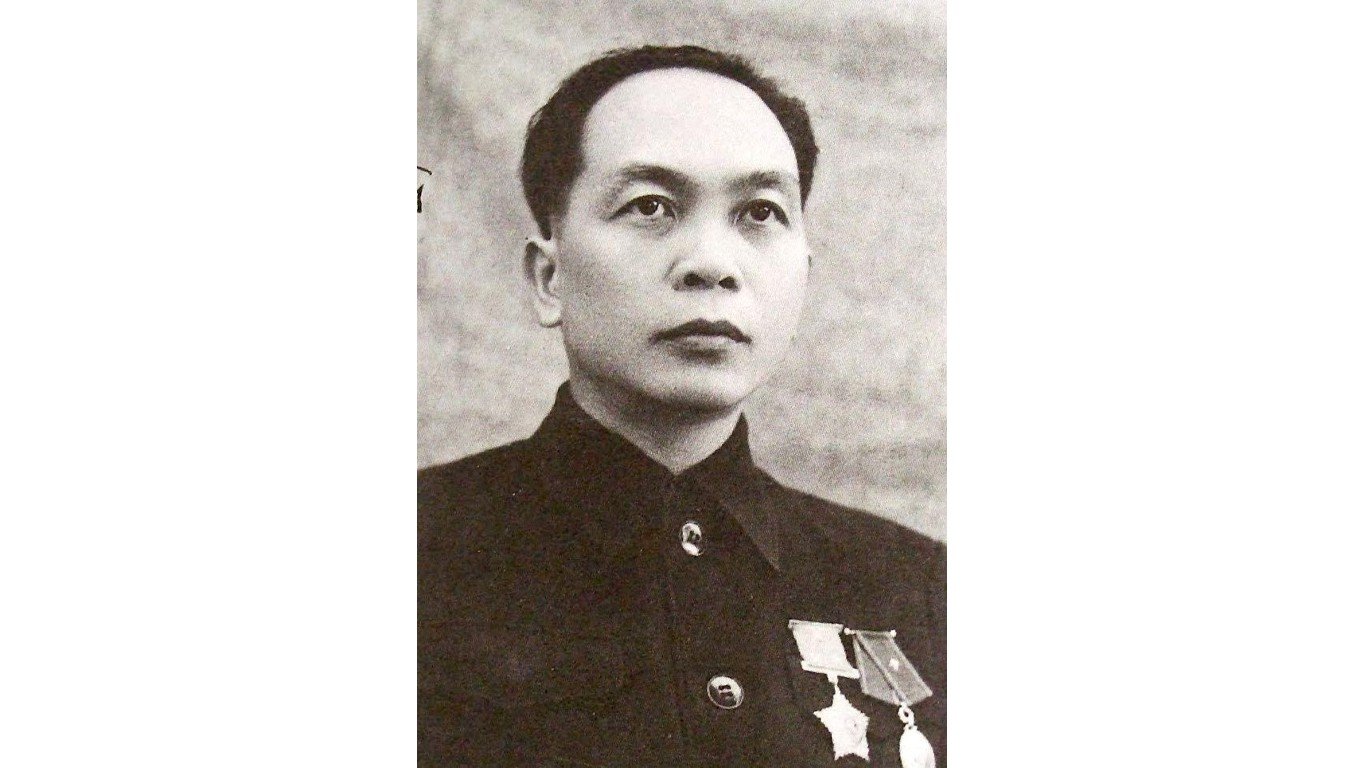
Võ Nguyên Giáp (1911-2013)
> Title: Vietnamese general and minister of defense
Sometimes called the “Red Napoleon,” Võ Nguyên Giáp was one of the most brilliant military strategists of the 20th century. During WWII, he led the Viet Minh resistance against the Japanese occupation of Vietnam. He was a principal commander of the People’s Army of Vietnam in the First Indochina War (1946-54) and the Vietnam War (1960-75). He participated in the battle of Điện Biên Phủ (1954), the Tết Offensive (1968), and, at the age of 63, the final Ho Chi Minh Campaign (1975).
Tokugawa Ieyasu (1543-1616)
> Title: Japanese shōgun (military dictator)
Tokugawa Ieyasu won the Battle of Sekigahara in 1600, considered the most important conflict in Japanese feudal history, when he was 57 years old. He became the first shōgun of the Tokugawa Shogunate, a unifying military government that would last more than 250 years.
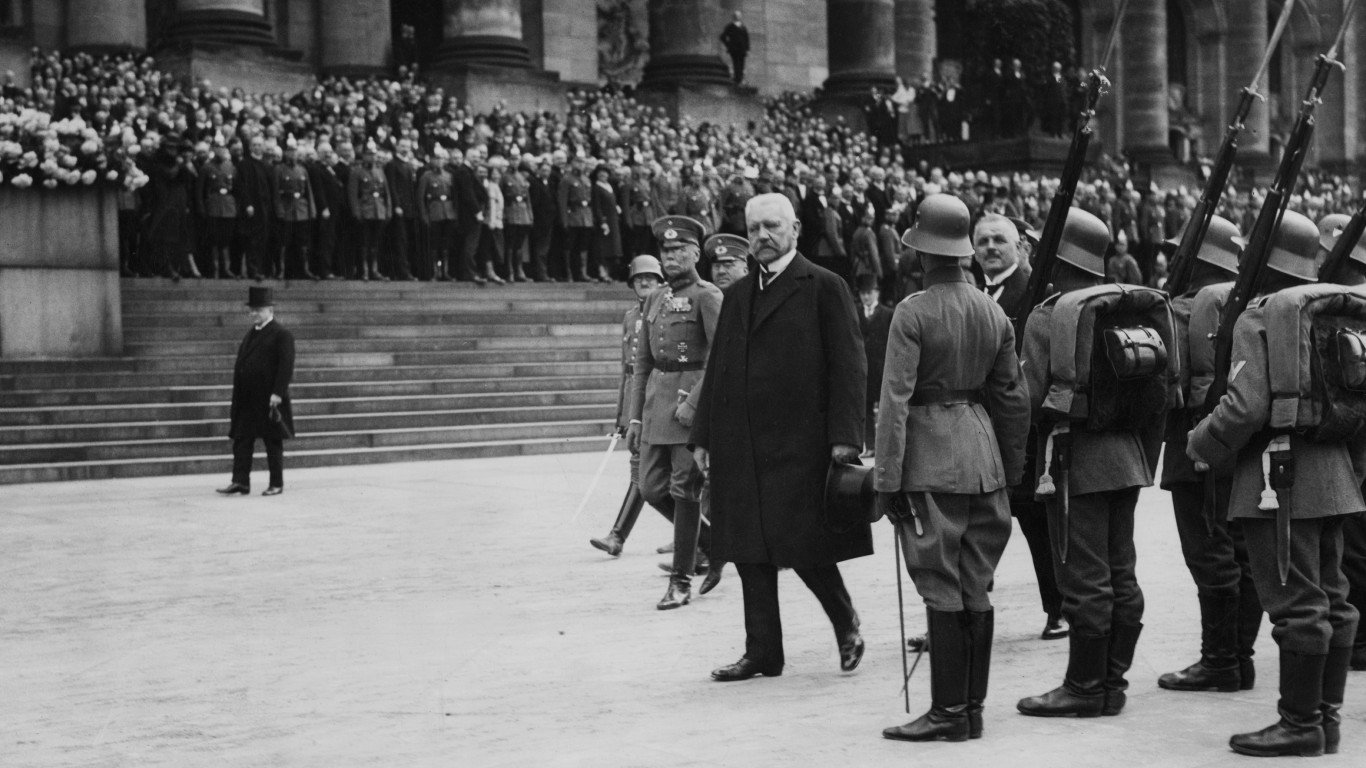
Paul von Hindenburg (1847-1934)
> Title: German field marshal
Paul von Hindenburg fought in the Austro-Prussian War in 1866 and the Franco-Prussian War four years later, and retired as a general at 64 years of age in 1911. He was called back to service at the outbreak of WWI when the Russians invaded East Prussia. He and General Erich Ludendorff led the German army in driving out the Russians and Hindenburg became a national hero. He retired again in 1919 but returned to public service in 1925 as president of the Weimar Republic, where he served until his death in 1934 at age 87.
[in-text-ad-2]
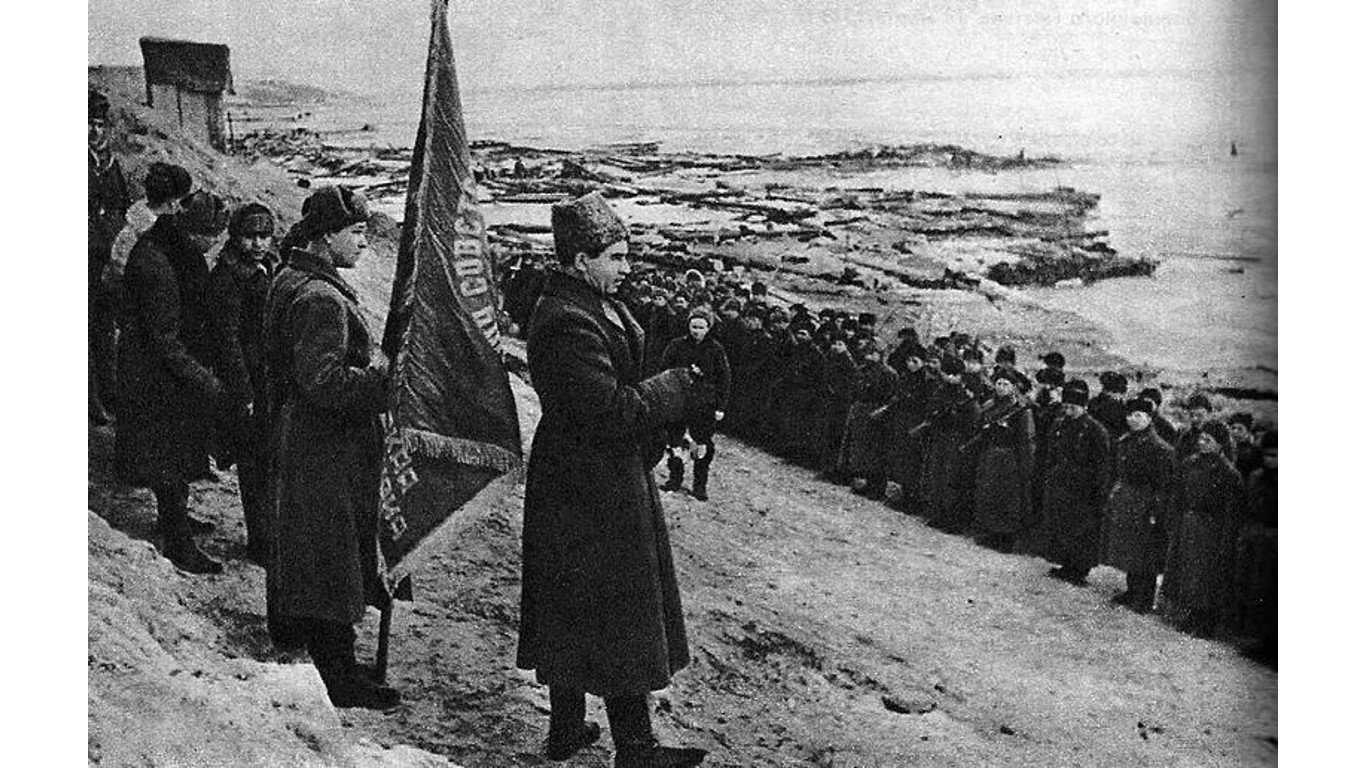
Vasily Chuikov (1900-1982)
> Title: Soviet military leader
Vasily Chuikov had a long military career. He joined the Red Army at the age of 18 during the Russian Revolution. Over his 55 years in service, he fought in the Russian Civil War and the Winter War with Finland, and during WWII he led the defense of Stalingrad and was one of the commanders who led Soviet forces into Berlin. Chuikov personally accepted the German surrender of that city on May 2, 1945, at the age of 45. While that was his last wartime experience, Chuikov was head of the Soviet Civil Defense Forces until the age of 72.
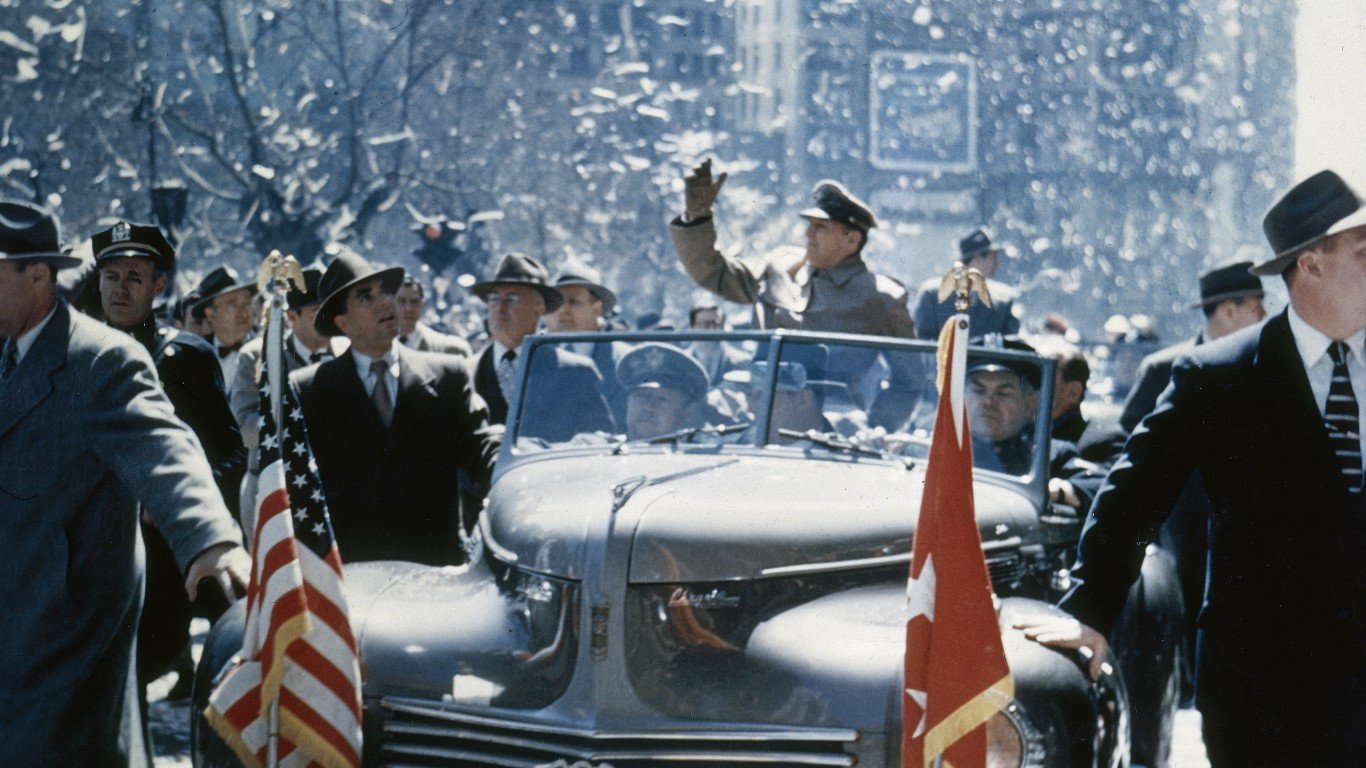
Douglas MacArthur (1880-1964)
> Title: American general
Douglas MacArthur served in the U.S. Army for more than 60 years. After a variety of posts in the U.S. (including a stint as superintendent at West Point) and the Philippines, he was recalled to active duty at 61 years of age in July 1941 as Japan expanded its empire in Asia. He helped liberate the Philippines and led the Allies to victory over Japan, then served as Allied commander during the Japanese occupation in 1945-1951. At the age of 71, MacArthur commanded UN forces against communist invaders in South Korea.
[in-text-ad]
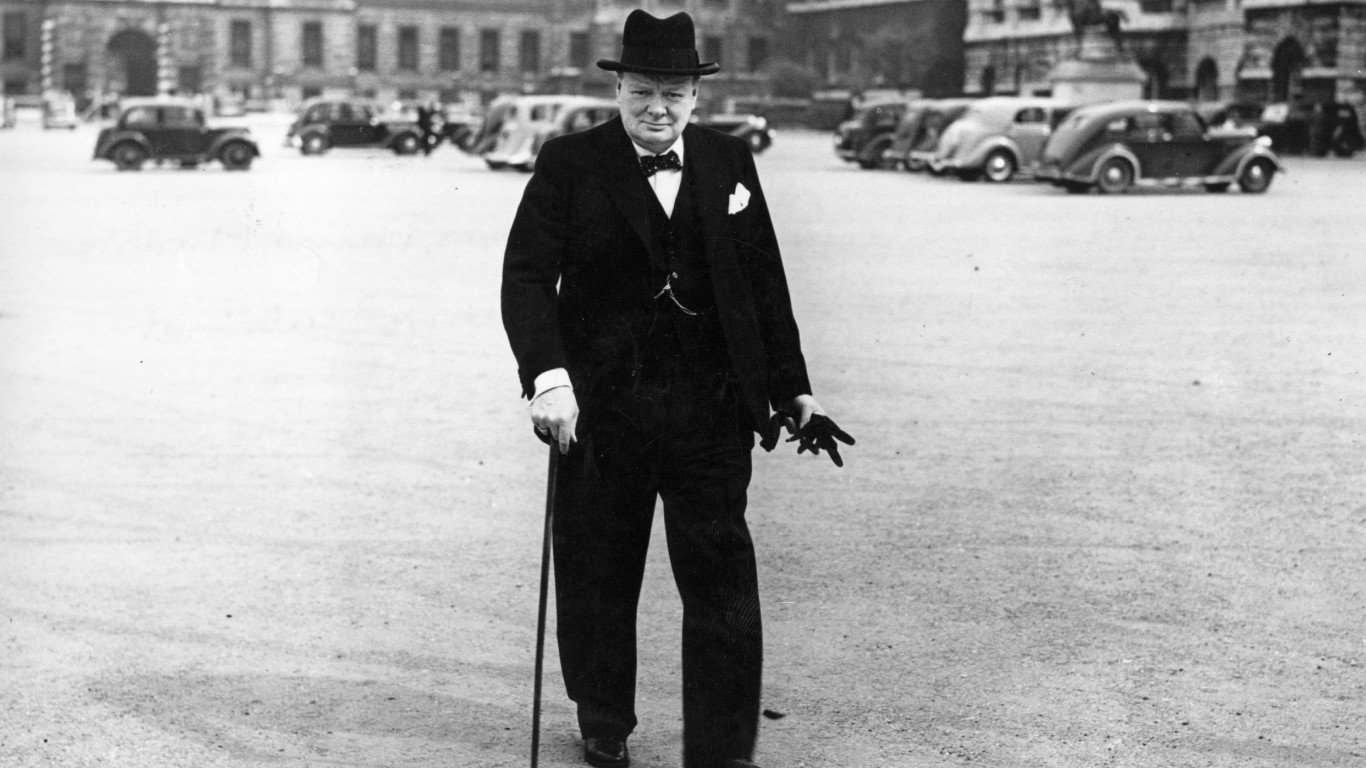
Winston Churchill (1874-1965)
> Title: British prime minister
Winston Churchill was one of the towering statesmen of the 20th century. After starting his career as a journalist covering the Boer War in 1899, Churchill began his long political career when he joined the House of Commons as a Conservative member. Churchill’s bulldog demeanor symbolized British resistance to Nazi Germany. He became prime minister at age 64 during WWII and led Great Britain to victory. In 1951, the 77-year-old Churchill became prime minister for the second time, retiring in 1955.
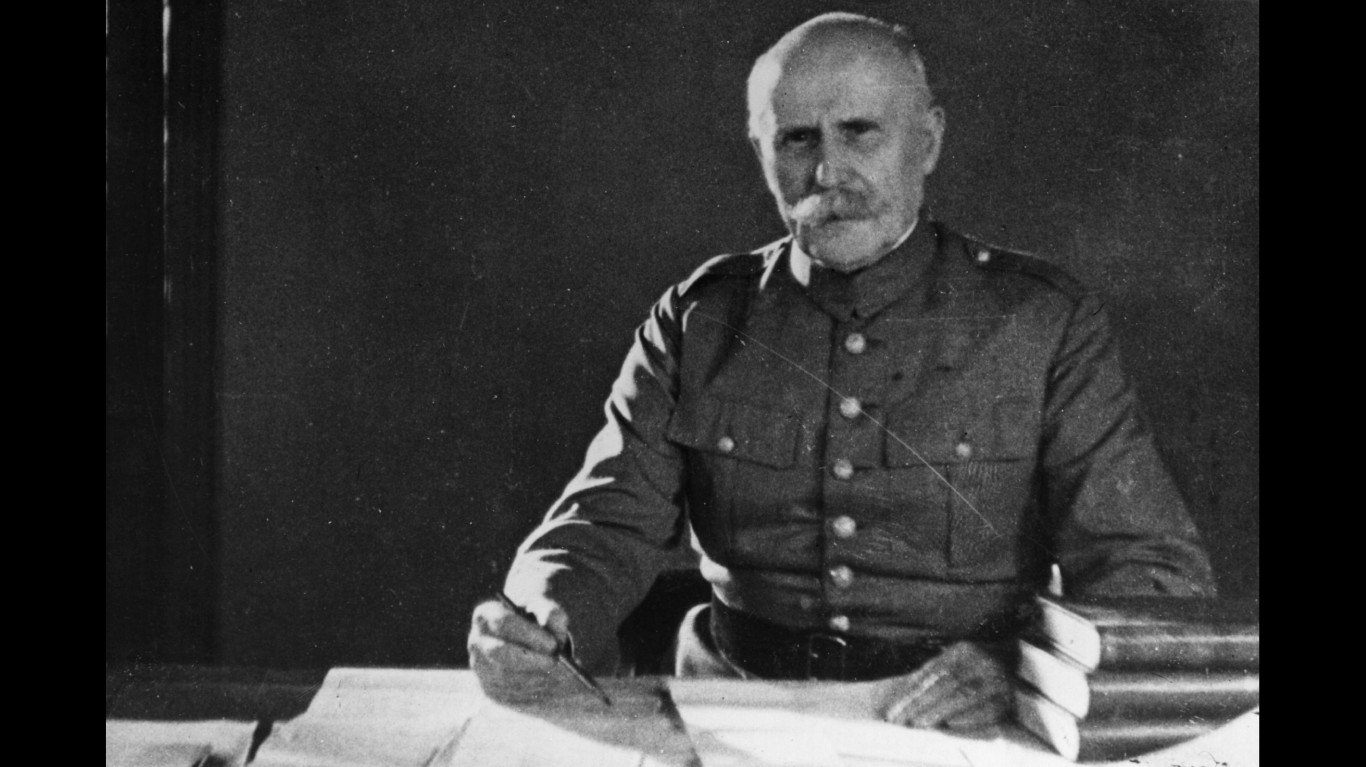
Henri-Philippe Pétain (1856-1951)
> Title: Chief of the French State
Henri-Philippe Pétain became a general in the French army at age 58 at the outbreak of WWI. He gained fame for defending the fortress of Verdun against the Germans. Fame turned to infamy for Pétain during WWII. Following the collapse of French forces after the German invasion in May 1940, the collaborationist Vichy government, which styled itself the French State, gave Pétain, then 84, almost absolute powers. After the war, he was sentenced to death for collaborating with the Germans. The sentence was commuted to life in prison, where he died at age 95 in 1951.
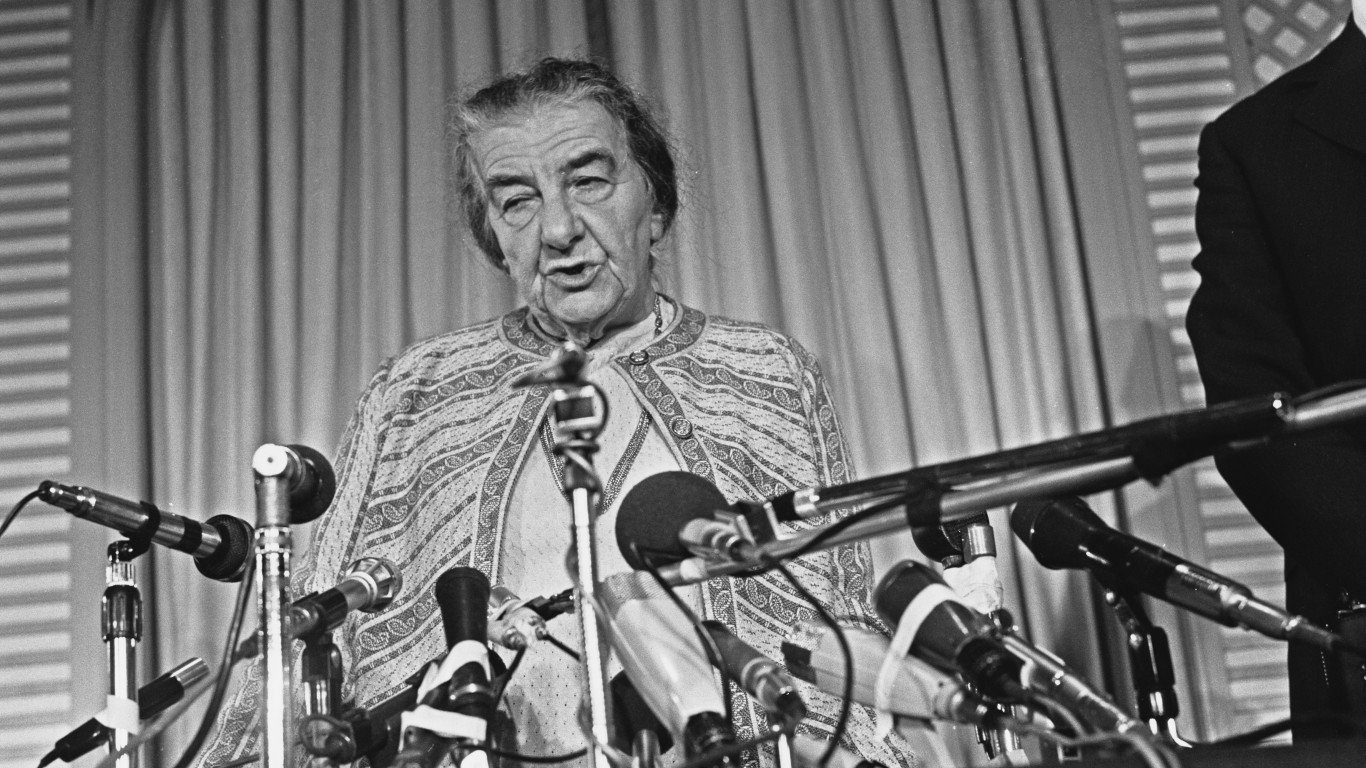
Golda Meir (1898-1978)
> Title: Israeli prime minister
A former Milwaukee schoolteacher whose family fled from the pogroms in Russia, Golda Meir became a staunch Zionist who helped found the state of Israel. She became foreign minister in 1956 and in 1969 became Israel’s first female prime minister. At 74, Meir led Israel to victory over Arab forces in the Yom Kippur War of 1973
[in-text-ad-2]
Emperor Franz Joseph (1830-1916)
> Title: Emperor of Austria-Hungary
Franz Joseph I was the face of European monarchy for most of the 19th century and the first part of the 20th. As leader of a multi-ethnic empire, Franz Joseph begrudgingly allowed more autonomy for Hungarians and other ethnic groups. But the empire was in decline and unprepared for war when the 83-year-old’s heir apparent, Franz Ferdinand, was assassinated in Sarajevo, setting off the chain of events that led to World War I.
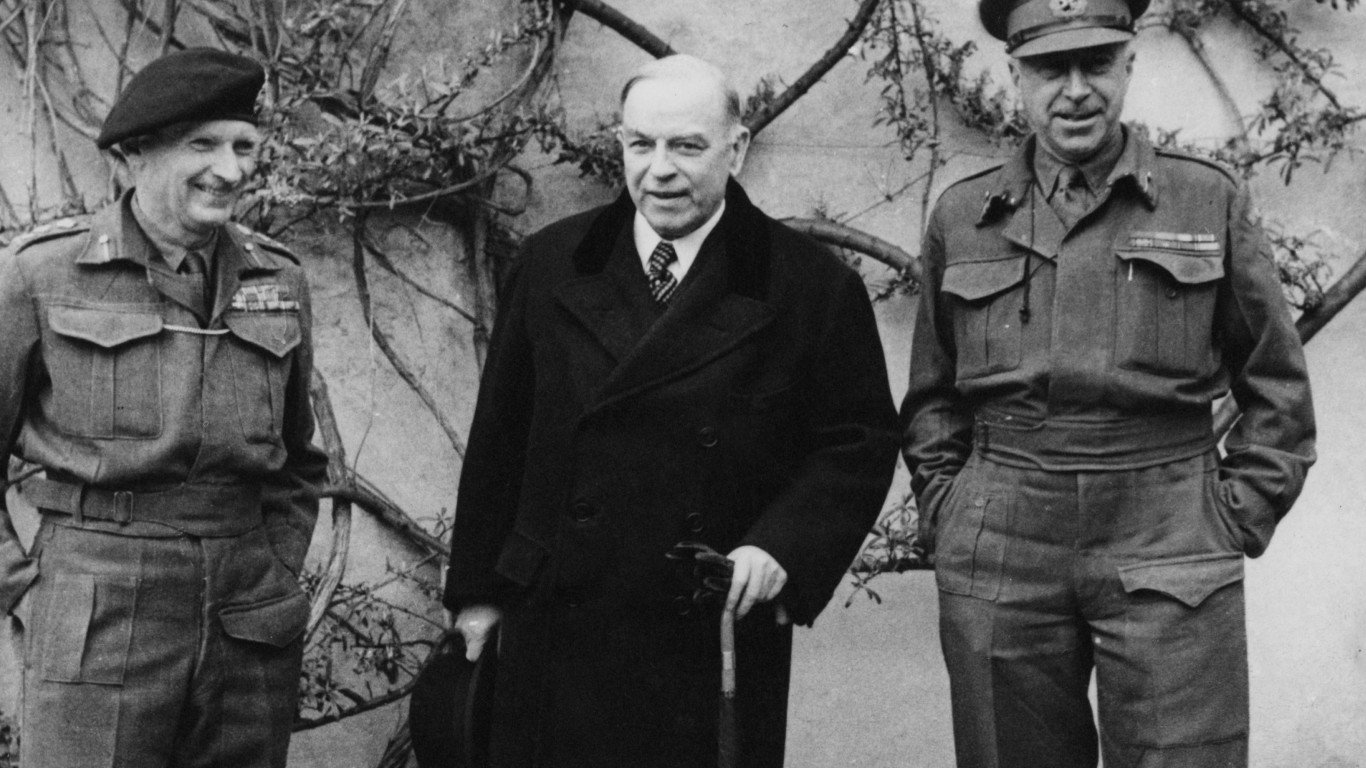
William Lyon Mackenzie King (1874-1950)
> Title: Canadian prime minister
With a total of 21 years and 154 days in office, William Lyon Mackenzie King is the longest-serving prime minister in Canadian history. His tenure included the WWII years, and he was 74 when he left office in 1948. By that time, Canada had achieved greater independence from Britain and a stronger international voice.
[in-text-ad]
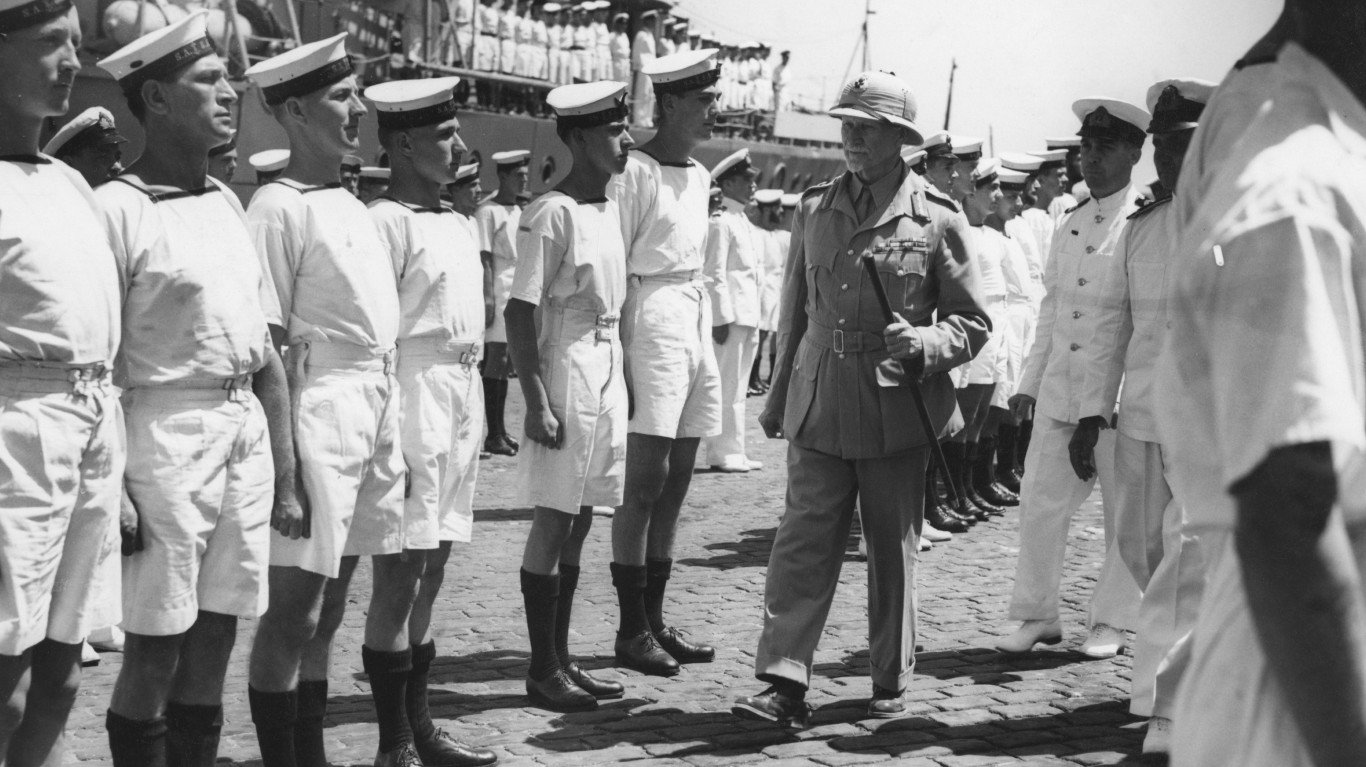
Jan Smuts (1870-1950)
> Title: South African prime minister
Jan Smuts served as prime minister of the Union of South Africa from 1919 to 1924 and again from 1939 to 1948, leaving office at 78 years old. He fought against the British in the Second Boer War (1899-1902), which resulted in the Boers losing their independent republics. Smuts struck an accommodation with the British and as prime minister during WWII, he brought South Africa into the war against Nazi Germany. Even though he was an Afrikaner, as prime minister he worked to keep South Africa within the Commonwealth.
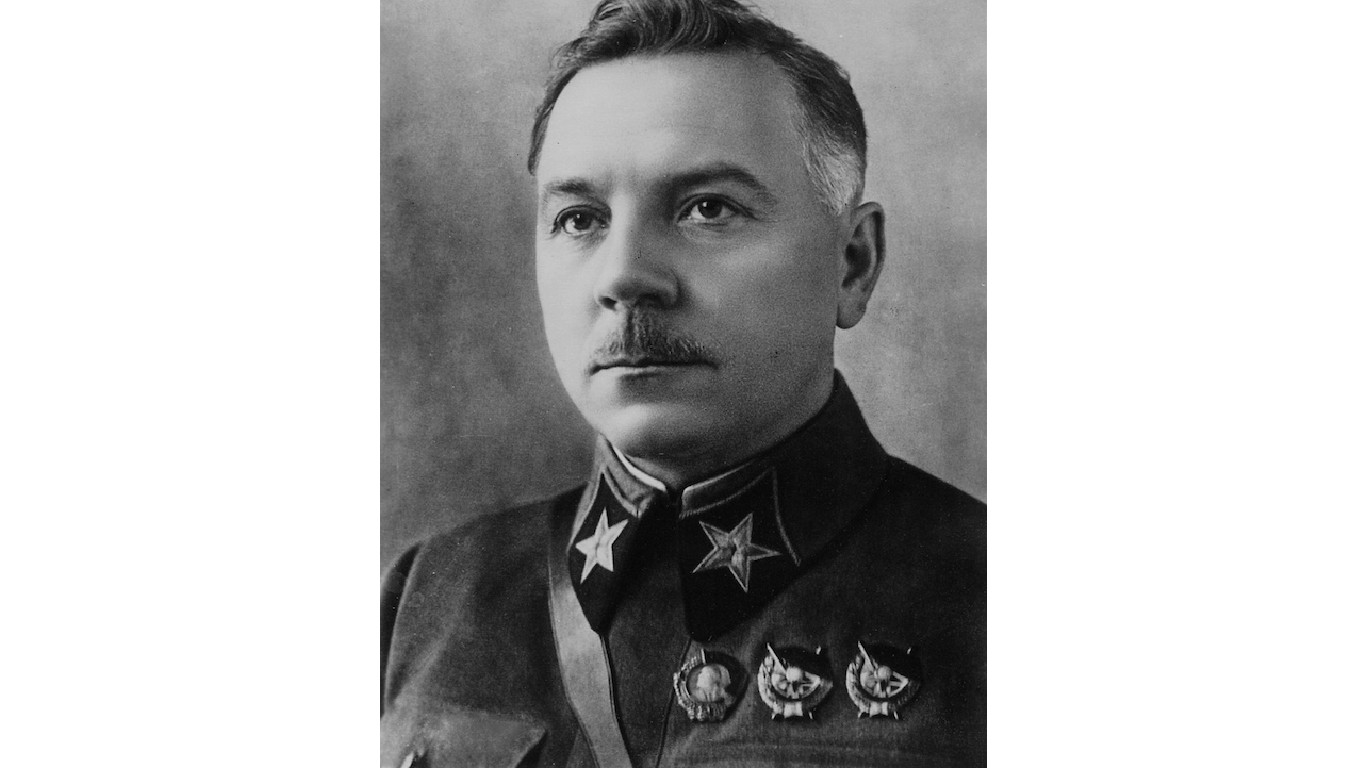
Kliment Yefremovich Voroshilov (1881-1969)
> Title: Soviet military leader
Kliment Yefremovich Voroshilov was one of five marshals of the Soviet Union, that country’s highest military rank. He began his military career in the Red Army and fought in the Russian Civil War. He was a close associate of dictator Joseph Stalin, who made him people’s commissar for defense. The 60-year-old Voroshilov was sacked for the early disasters of the Red Army in WWII, including failing to stop the German siege of Leningrad in 1941. He continued to serve in other military capacities during the war, then served in the Soviet government until he retired in 1960.
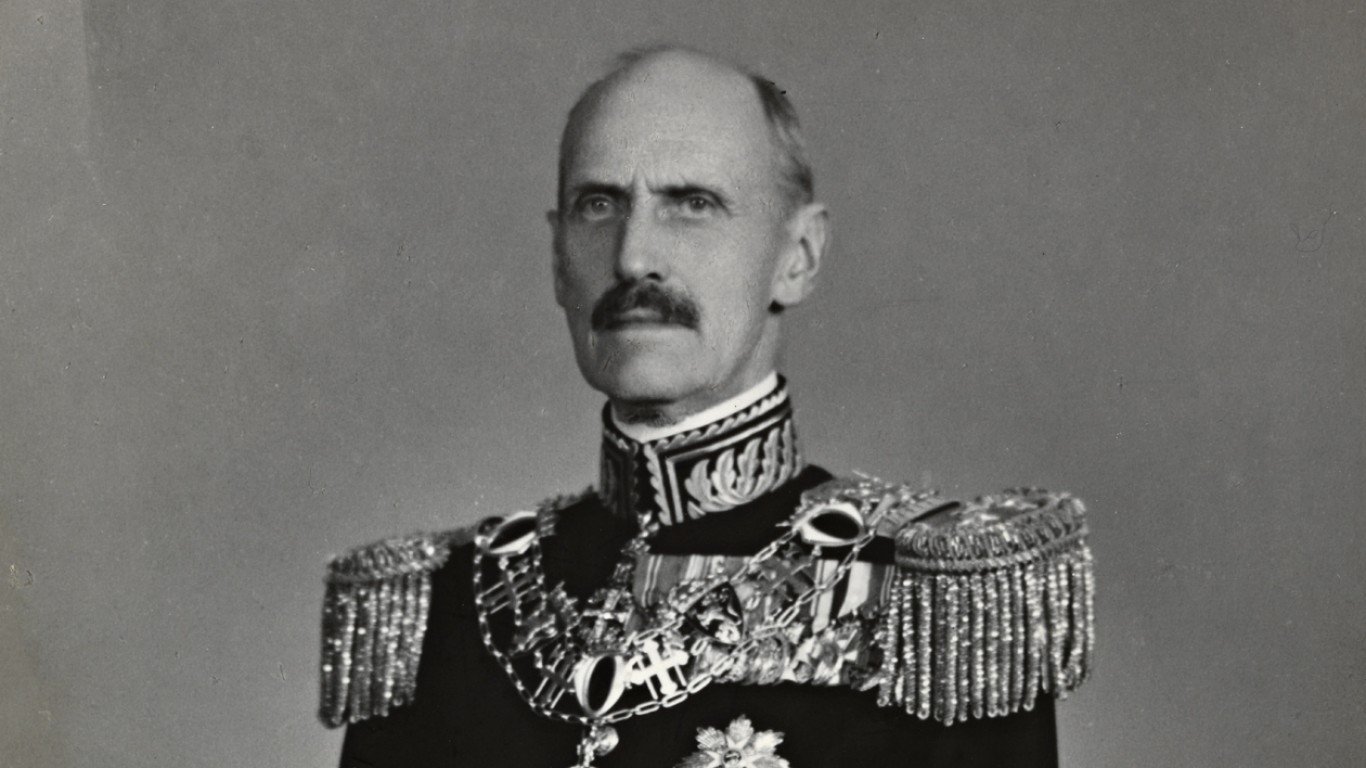
King Haakon VII (1872-1957)
> Title: King of Norway
King Haakon VII was the first king of Norway after the nation gained independence in 1905. He served the country in both world wars. During WWII, Haakon rejected German demands to legitimize the puppet government of Vidkun Quisling, and refused to abdicate after going into exile in Great Britain. His actions served to inspire Norwegian resistance during the German occupation. He returned to Norway in triumph in June 1945.
[in-text-ad-2]

Queen Wilhelmina (1880-1962)
> Title: Queen of the Netherlands
Queen Wilhelmina reigned for nearly 58 years, longer than any other Dutch monarch. She was Queen of the Netherlands during both world wars, and succeeded in keeping the Netherlands neutral during WWI. When Germany invaded the country in 1940, the 59-year-old Wilhelmina left for England with her family and members of the Cabinet. Throughout the war, she urged her people over Radio Orange to maintain their spirit until liberation came. Enthusiastic crowds greeted her when she returned home following the defeat of the Nazis.

Christian X (1870-1947)
> Title: King of Denmark
Christian X was another European monarch who reigned during both world wars. After Germany occupied Denmark during WWII, Christian refused to abandon his claim as Danish sovereign and became a popular symbol of resistance. In an act of defiance, every day he rode through the streets of Copenhagen on horseback unaccompanied by guards. His speech against the occupation forces in August 1943, following a battle between the Germans and Danish resistance fighters, landed him in prison at the age of almost 73, and he remained there until the end of the war.
[in-text-ad]
Henri de La Tour d’Auvergne, Vicomte de Turenne (1611-1675)
> Title: Marshal General of France
Henri de La Tour d’Auvergne’s military exploits over his five-decade career earned him a reputation as one of the greatest military commanders in modern history, best-known for his successes against the Spanish. He was a major influence on Napoleon Bonaparte, who urged his subordinates to read Turenne’s books on tactics. Turenne was named “marshal general of the king’s camps and armies” by Louis XIV in 1661. in 1660, serving King Louis XIII and later King Louis XIV. He died at age 64 from wounds inflicted by a cannonball during the Franco-Dutch War.
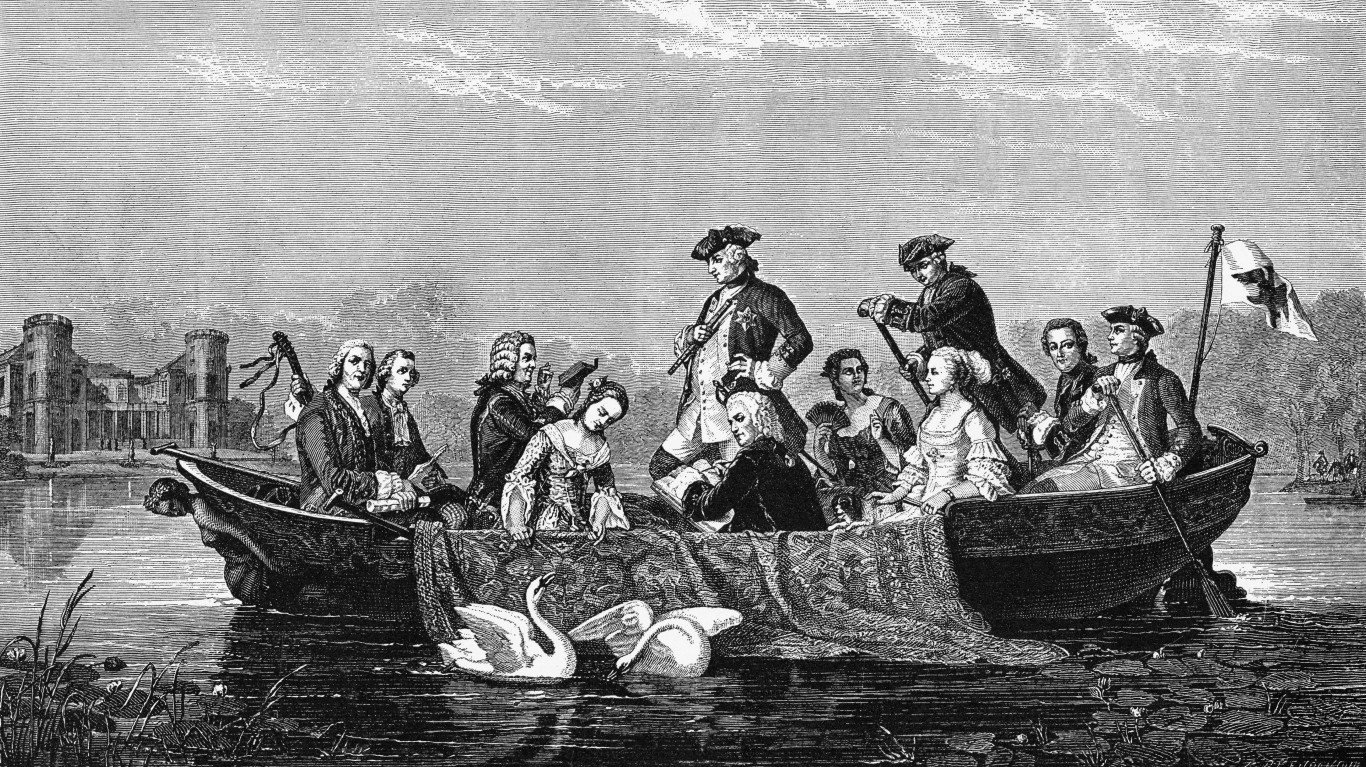
Frederick the Great (1711-1786)
> Title: Prussian emperor and military leader
Renowned as an innovator in military tactics, Frederick the Great projected Prussian military power and made his nation one of the most powerful states in Europe in the 18th century. The primary objective of Frederick’s rule was to increase the strength of the state and the size of the army. Under his reign, Prussia became known as a great military power, bolstered by competent battlefield leadership and iron discipline.
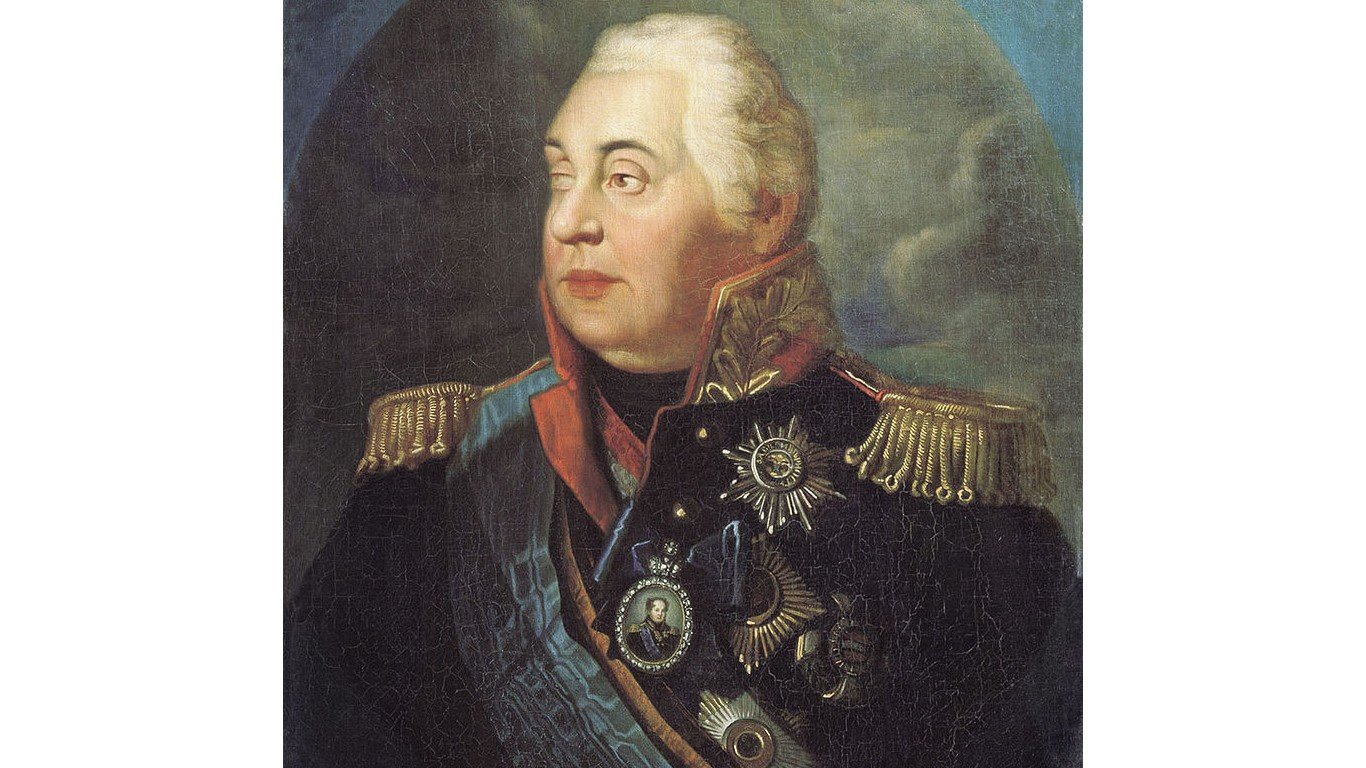
Prince Mikhail Illarionovich Golenishchev-Kutuzov (1745-1813)
> Title: Russian marshal
For many Russians, Prince Mikhail Illarionovich Golenishchev-Kutuzov was their nation’s savior. He reformed the Russian Army and his scorched-earth policy – and the heavy losses the nearly 67-year-old marshal inflicted on the French at the Battle of Borodino (1812) followed by his harassment of Napoleon’s troops after they withdrew from Moscow – spelled disaster for France. Kutuzov chased the French into Poland and Prussia, dying from disease in the latter place in 1813.
[in-text-ad-2]
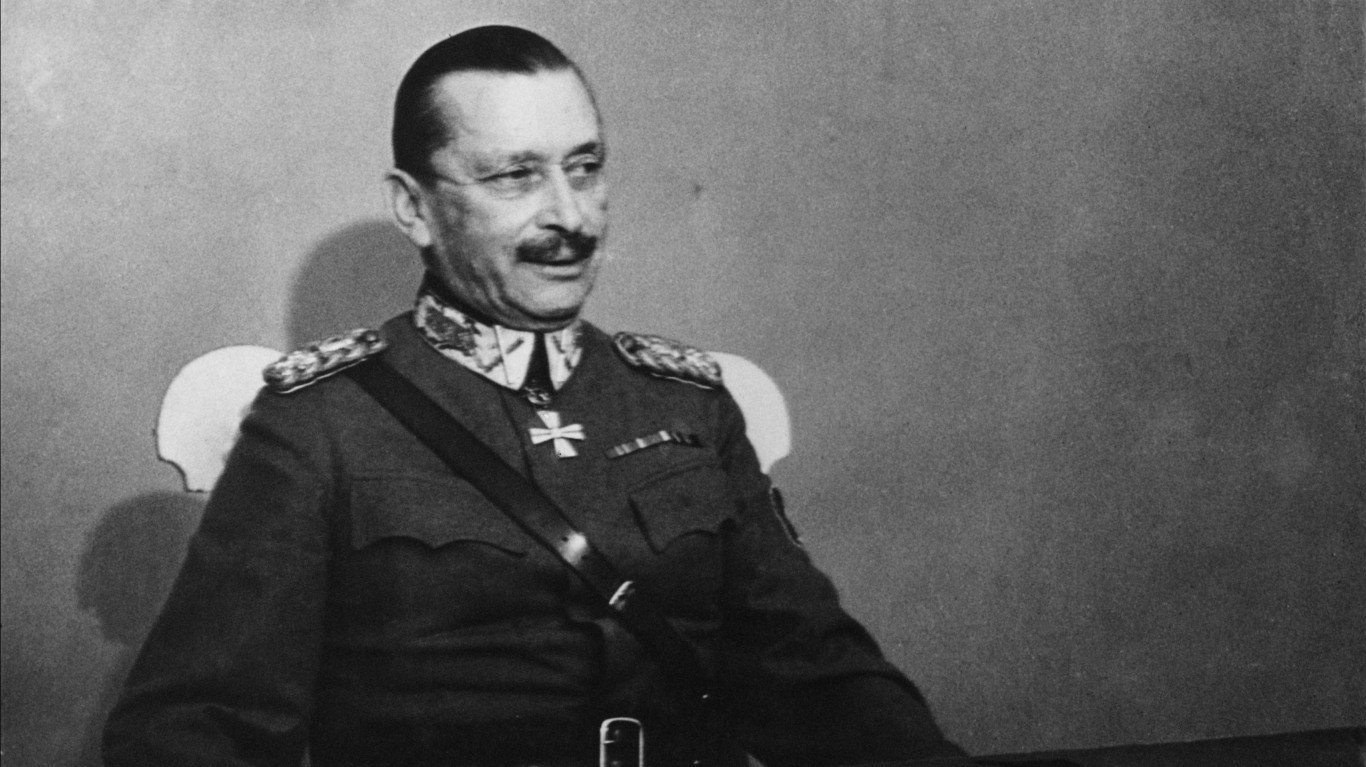
Baron Carl Gustaf Emil Mannerheim (1867-1951)
> Title: Finnish commander-in-chief
Baron Carl Gustaf Emil Mannerheim might be one of the 20th century’s most underrated generals. He led anti-Bolshevik forces to victory in 1918 in the Finnish Civil War after Finland declared independence from Russia. During the so-called Winter War (1939-40), Mannerheim, then 72, led the outnumbered Finnish defense forces that initially thwarted the Soviet invasion . Temporarily allied with Nazi Germany, he went on to fight in the invasion of the USSR called the Continuation War.
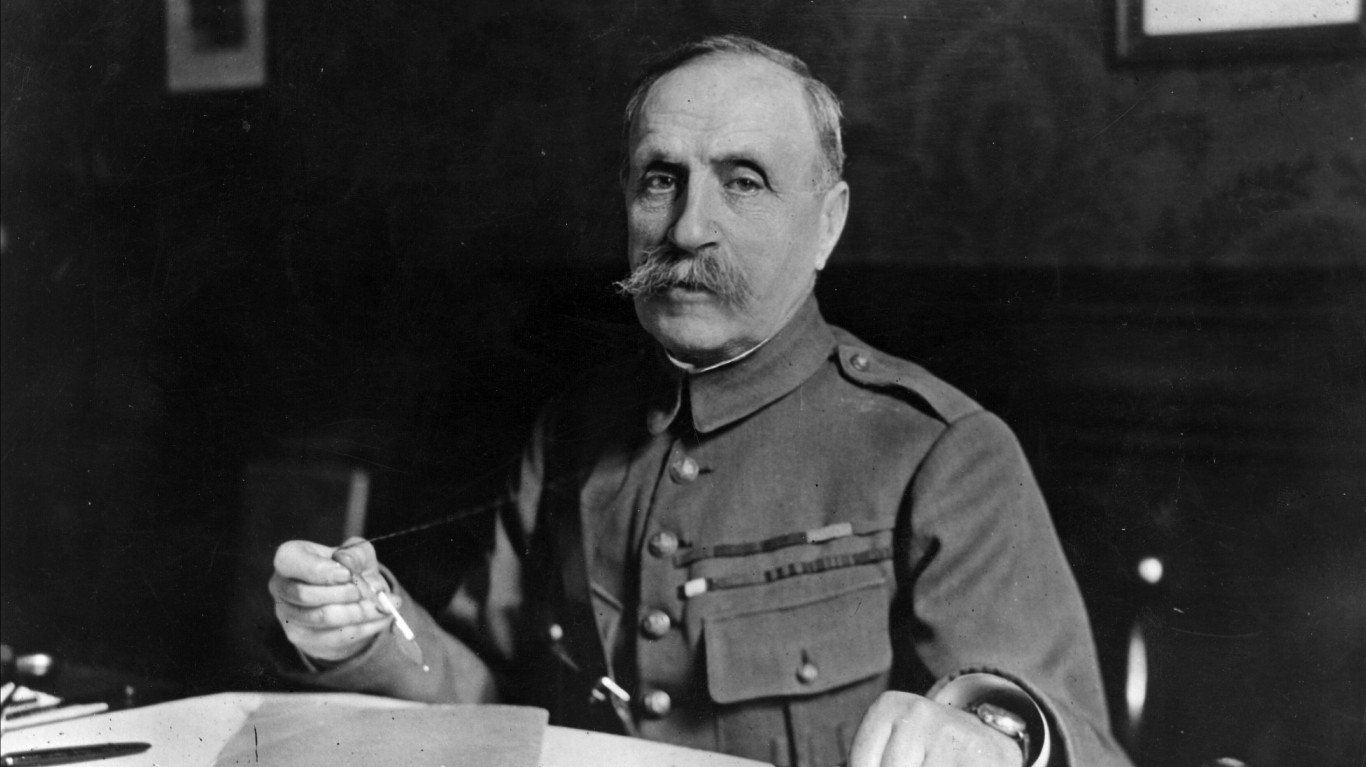
Ferdinand Foch (1851-1929)
> Title: French Supreme Allied Commander
Ferdinand Foch, who joined the French Army during the Franco-Prussian War in 1870, was a general and military theorist who earned a reputation as an astute tactician. He stopped the Germans at the First Battle of the Marne in 1914 and, after being named France’s Supreme Allied Commander, won the Second Battle of the Marne four years later. He went on to help lead the combined forces of France, Great Britain, and the U.S. to victory over the German Empire.
[in-text-ad]
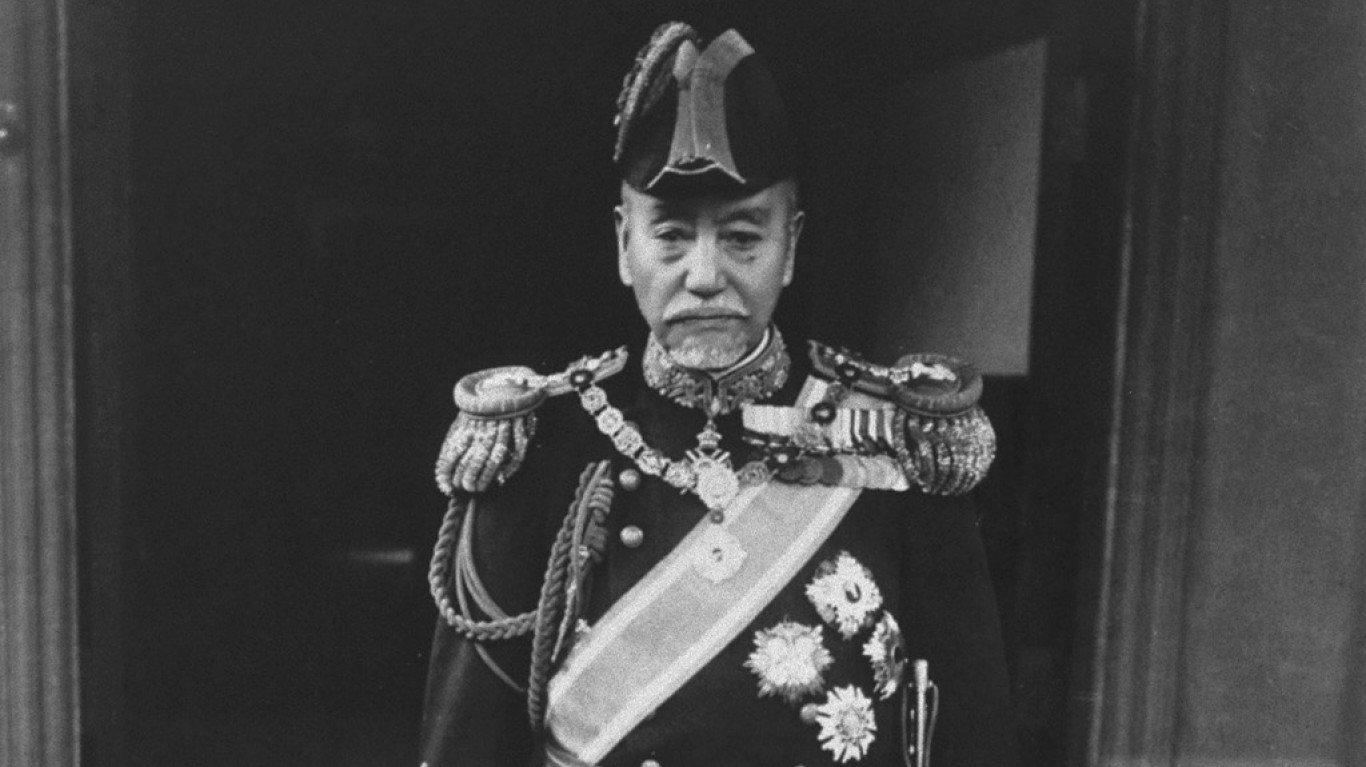
Tōgō Heihachirō (1848-1934)
> Title: Japanese admiral
Tōgō Heihachirō was a Japanese admiral who studied naval strategy with Britain’s Royal Navy in the 1870s. At the age of 56, he led the Japanese fleet to victory over the Russian Navy’s Baltic fleet in the Battle of Tsushima during the Russo-Japanese War (1904-05). That victory and other Japanese successes led to Japan’s victory over Russia, the first time an Asian power had defeated a Western nation in war. The consequences would be far-reaching, boosting Japan’s presence in Asia and greatly expanding its imperial ambitions.
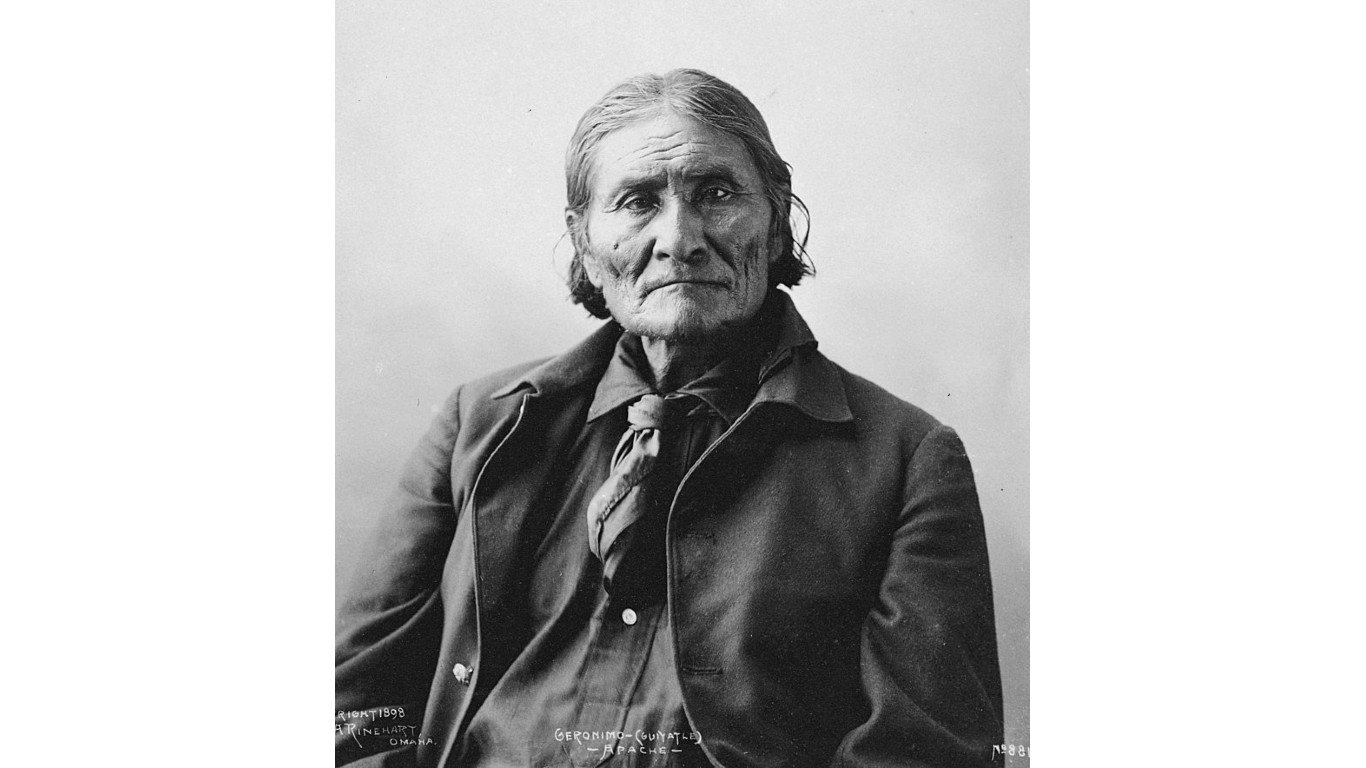
Geronimo (1829-1909)
> Title: Native American leader
Geronimo was an Apache medicine man, or shaman, not a chief, but he was the most feared Native American leader of the 19th century. His use of guerrilla tactics enabled him to avoid capture by the American army for more than two decades. After being confined to a reservation, he broke out three times. It took a quarter of the army to finally capture him. In 1886, at age 57, he became the last Native American leader to formally surrender to the United States military. He would be a prisoner of war for the last 23 years of his life.
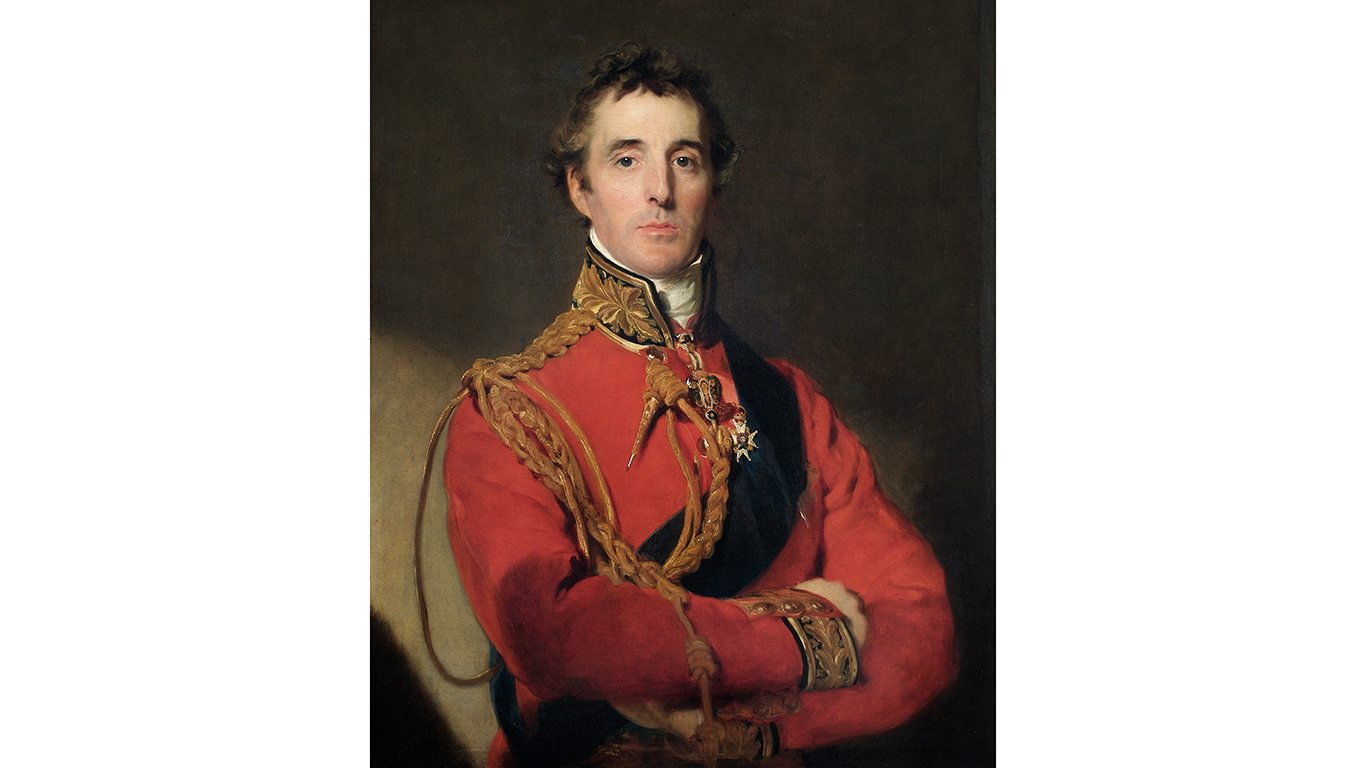
Arthur Wellesley, 1st Duke of Wellington (1769-1852)
> Title: British commander-in-chief
The Duke of Wellington, also known as the “Iron Duke,” was the author of one of Great Britain’s greatest military triumphs, when the British – with Prussian help – defeated Napoleon Bonaparte at Waterloo in 1815. The victory ended Napoleon’s reign in France and ushered in the Pax Britannica, a nearly 100-year period without major European wars. Wellington’s military success at Waterloo, preceded by triumphs in India and on the Iberian Peninsula, enabled him to become prime minister in 1828. In 1842, after he had left political office, he began a ten-year stint as commander-in-chief of the British army, remaining in that position until his death at 83.
Take This Retirement Quiz To Get Matched With An Advisor Now (Sponsored)
Are you ready for retirement? Planning for retirement can be overwhelming, that’s why it could be a good idea to speak to a fiduciary financial advisor about your goals today.
Start by taking this retirement quiz right here from SmartAsset that will match you with up to 3 financial advisors that serve your area and beyond in 5 minutes. Smart Asset is now matching over 50,000 people a month.
Click here now to get started.
Thank you for reading! Have some feedback for us?
Contact the 24/7 Wall St. editorial team.
 24/7 Wall St.
24/7 Wall St.
